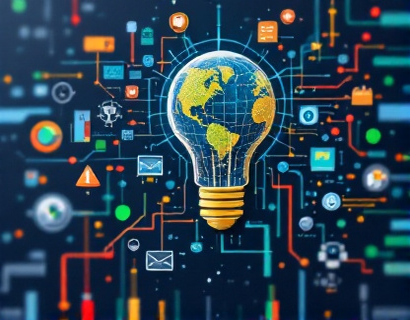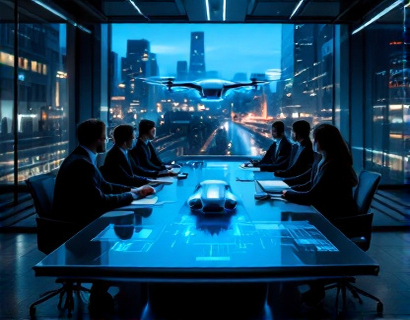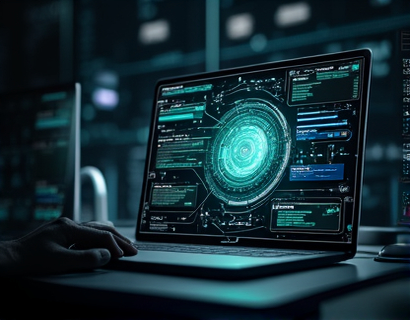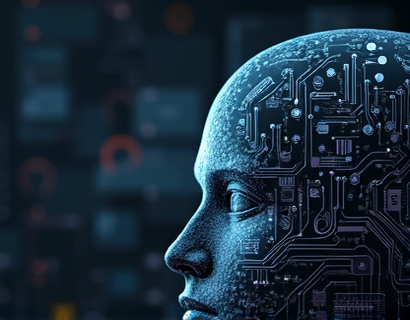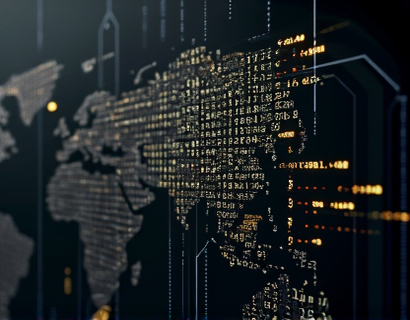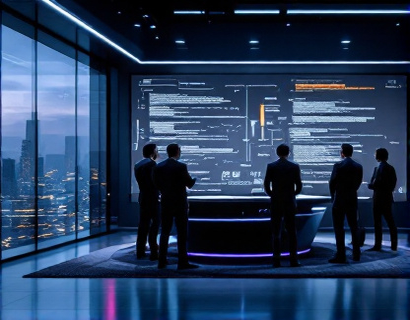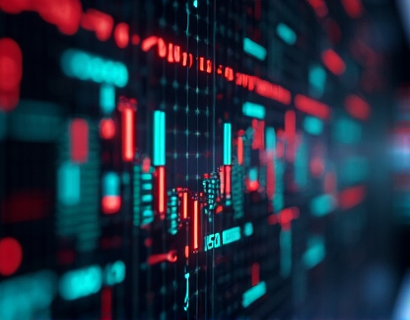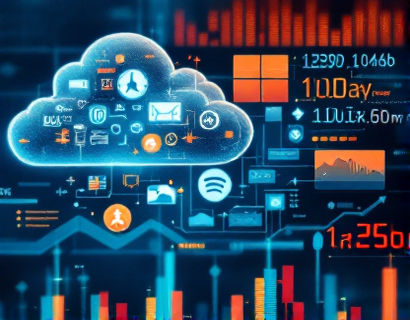Unlocking Enhanced Productivity in the Digital Age: The Synergy of AI and Cryptocurrency
The digital age has ushered in a revolution in how we approach productivity and task management. The convergence of Artificial Intelligence (AI) and cryptocurrency is at the forefront of this transformation, offering unprecedented opportunities to enhance efficiency and streamline workflows. This article delves into the ways advanced tech solutions are redefining productivity in the modern digital landscape, exploring the potential of AI and cryptocurrency to create a seamless and powerful blend that maximizes digital efficiency.
The integration of AI into various sectors has already demonstrated significant improvements in productivity. From automating routine tasks to providing insights through data analysis, AI technologies are becoming indispensable tools for individuals and organizations alike. However, when combined with the decentralized and secure nature of cryptocurrency, the potential for innovation and efficiency gains becomes even more profound.
AI-Driven Task Management
One of the most immediate impacts of AI on productivity is in the realm of task management. AI-powered tools can analyze user behavior and preferences to predict and automate routine tasks, freeing up valuable time for more critical activities. For instance, AI can manage calendars, set reminders, and even draft emails based on context and previous communications. This level of automation not only saves time but also reduces the cognitive load on users, allowing them to focus on higher-value tasks.
Moreover, AI-driven project management platforms can optimize workflows by identifying bottlenecks and suggesting improvements. These platforms use machine learning algorithms to analyze project data, providing insights that human planners might overlook. By automating repetitive tasks and offering real-time analytics, AI enhances the overall efficiency of project execution and management.
Enhanced Decision-Making with AI
AI's ability to process and analyze vast amounts of data quickly and accurately is a game-changer for decision-making processes. In a business context, AI can provide predictive analytics, helping organizations forecast market trends, customer behavior, and operational outcomes. This foresight enables better strategic planning and resource allocation, leading to more informed and effective decisions.
Furthermore, AI can assist in risk assessment by identifying patterns and anomalies in data that might indicate potential issues. This proactive approach to risk management can prevent costly mistakes and ensure smoother operations. The combination of AI and cryptocurrency adds another layer of security and transparency, as blockchain technology ensures that data used for analysis is tamper-proof and verifiable.
Cryptocurrency and Decentralized Applications
Cryptocurrency, with its decentralized nature, offers a new paradigm for financial transactions and asset management. When paired with AI, the potential for innovation is vast. Decentralized applications (dApps) built on blockchain technology can leverage AI to provide more efficient and secure services. For example, AI can enhance the functionality of decentralized finance (DeFi) platforms by optimizing trading strategies, managing risks, and automating compliance checks.
Smart contracts, a cornerstone of blockchain technology, can be programmed to execute automatically when certain conditions are met. AI can further enhance smart contracts by analyzing complex scenarios and suggesting optimal contract terms. This synergy reduces the need for intermediaries, lowers transaction costs, and increases the speed and reliability of transactions.
Security and Privacy in AI and Crypto Integration
Security and privacy are paramount in the digital age, and the combination of AI and cryptocurrency addresses these concerns effectively. Blockchain's inherent security features, such as cryptographic hashing and consensus mechanisms, ensure that data is protected from unauthorized access and tampering. AI can complement these features by detecting and mitigating security threats in real-time.
For instance, AI-powered security systems can monitor network activity and identify suspicious patterns that may indicate a cyberattack. These systems can automatically trigger defensive measures, such as isolating affected systems or alerting administrators. The integration of AI and blockchain creates a robust security framework that is both proactive and adaptive.
User Experience and Accessibility
The user experience is a critical factor in the adoption of new technologies. AI and cryptocurrency can work together to create more intuitive and accessible digital solutions. AI-driven interfaces can adapt to user preferences and behaviors, providing a personalized experience that enhances usability. For example, AI can optimize the layout and functionality of applications based on how users interact with them, making the interface more intuitive over time.
Cryptocurrency, particularly through the use of digital wallets and blockchain-based identity verification, can simplify access to these advanced services. Users can securely and easily manage their digital identities and assets, reducing the friction associated with traditional authentication methods. This seamless integration ensures that users can focus on leveraging the benefits of AI and cryptocurrency without being hindered by complex setup processes.
Future Prospects and Challenges
The future of AI and cryptocurrency integration holds immense potential, but it also comes with challenges. One of the primary challenges is the need for standardization and interoperability. As the number of AI and blockchain-based solutions grows, ensuring that they can work together seamlessly is crucial. Industry collaboration and the development of open standards will be key to overcoming this hurdle.
Another challenge is the regulatory landscape. Governments and regulatory bodies are still grappling with how to address the unique aspects of AI and cryptocurrency. Clear and consistent regulations will be essential to foster innovation while protecting consumers and maintaining market integrity. The tech community, including developers and entrepreneurs, must engage in dialogue with regulators to shape policies that support responsible innovation.
Conclusion
The convergence of AI and cryptocurrency is poised to revolutionize productivity and task management in the digital age. By automating routine tasks, enhancing decision-making, and providing secure and decentralized services, this powerful blend offers a future where work capabilities are significantly enhanced. As technology continues to evolve, the integration of AI and cryptocurrency will likely become even more sophisticated, opening up new possibilities for efficiency and innovation. Embracing these advancements can help individuals and organizations stay ahead in the rapidly changing digital landscape.



